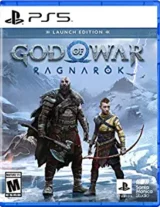Sucker Punch discusses Ghost of Tsushima’s approach to cultural authenticity
“One of the joys of the project was being committed to being a learner,” says producer Brian Fleming

Sucker Punch Productions has explained how international collaboration was key to creating a culturally authentic product when developing Ghost of Tsushima.
The American studio has received much praise for its representation of Japan in the PS4 game, which is set during the Mongol invasion of Tsushima island in 1274.
“From the very beginning, the original pitch, we were aware of the level of responsibility we had to have in this area,” Sucker Punch co-founder and producer Brian Fleming said during a GDC Showcase AMA session on Monday.
“One of the joys of the project was being committed to being a learner, not remotely pretending that we understood it, to recognise that we needed to go learn and that we had to go find a selection of teachers and mentors to really help us on that journey.”
One of the first people Sucker Punch pitched the game to was Shuhei Yoshida, who at the time was president of PlayStation’s Worldwide Studios association.
“We wanted not just his guidance and his assessment but really his blessing that this could be done, that a team from the west could really do this”, Fleming said.
“And with his support, then we began engaging with a wider audience and that almost immediately included the team at Sony, the Japan team, and their participation in the game throughout, from the original pitches to each of the videos that we would show.
“They would reflect back to us the parts of the visuals and the parts of the story and the parts of the characters, the themes of the characters, all the details that they found both worked well and the things that were not working for them.

“We were super appreciative of that feedback and responsive as a result. And so that process was really a healthy part of the ongoing development throughout and certainly without their guidance we would never have achieved what we achieved.”
Fleming said the development team studied numerous reference books as part of its research process and that one text, The Mongol Invasions of Japan 1274 and 1281, was particularly helpful.
“But I think in the end, the critical, critical thing was finding people who knew the culture, knew the history and were able to guide us with their expertise.”
He added: “One of the details I really love is that [Japan] team was so committed to the project that they made sure that every single kanji in the game, that they understood that that kanji actually existed in the 13th century.
“There are often multiple different ways to describe something and they went and found the exact kanji that would have been used back in that time to make sure that we were being authentic even at that level, so it was a tremendous effort and partnership with that team.”
Ghost of Tsushima released in July 2020 and recorded the best launch week sales of any first-party PS4 game in Japan.
In January 2021, the popularity of Ghost of Tsushima led to fans helping raise more than $260,000 to rebuild a shrine on the real island.
And this month the mayor of Tsushima announced that the leads behind the game, director Nate Fox and creative director Jason Connell, would be honoured as permanent tourism ambassadors due to the significant awareness the title had generated for the island.
The mayor has since said he would like to make everyone involved in the game’s development an ambassador for Tsushima.















